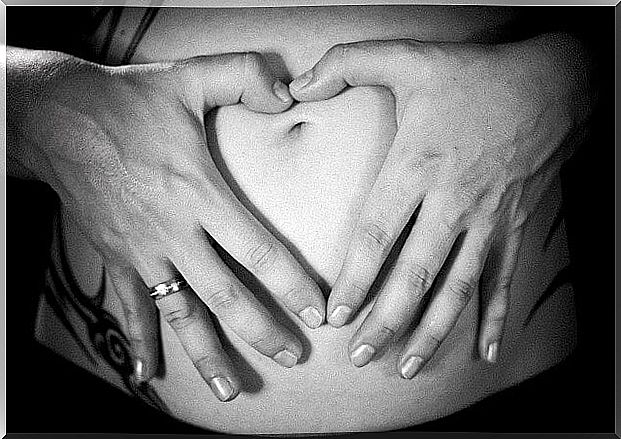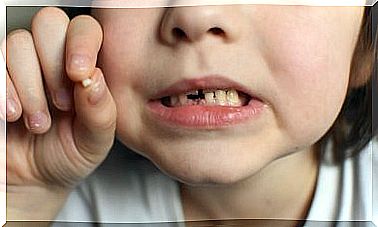Find Out What Your Baby Does While In The Womb

What your baby does while in the womb is as fascinating as his behavior when you already have him in your arms. Although he is still not aware of how humans behave or what all the adventures he does will serve him, he is constantly active.
If you want to know what your little one may be doing right now, we invite you to continue reading. This article has been written especially to satisfy the curiosity of those mothers who love to follow month by month, week by week and even minute by minute the development of their baby.
Find out what your baby does while in the womb
Your baby listens to you
Your baby hears your heartbeat. That will be one of the sounds that will calm him down and make him happy when he’s out of your belly. But in addition to your heart, your baby can hear your voice and that of those who speak near you.
Despite the fact that the amniotic fluid in which “nothing” interrupts the vibrations of the sound, it also receives traces of the music you play and all the sound effects of the world in which you live. This happens after your baby turns 20 weeks. That is why music therapy during pregnancy is such a beneficial option.
Your baby sucks his thumb
Just a few hours after birth, when you breastfeed, your baby begins to suck the milk. At first he will do it with some difficulty, he may not even be interested in her; but in no time he will be feeding off of you as easily as if he had trained for it.
Well, in you are a mom we can tell you that many babies do “train” to suck their mothers’ breasts. And they do this by sucking their thumb while they are still in the womb.
Your baby hiccups
Your baby can hiccup, even more than you can imagine. This is a fairly frequent occurrence, especially during the last trimester of pregnancy.
Some specialists point out that these spasms may mean one more way to prepare your organs for life outside the uterus. The contraction of the diaphragm and the entry of amniotic fluid into your lungs help you exercise these structures.

Your baby has facial gestures
After the sixth month, your baby can usually wink his eyes. As if mastering the emotions of adult humans, your baby will smile, frown, and make other facial gestures while inside your womb.
Your baby follows a routine of life
Although it may seem funny to you, your baby follows a routine of life while it grows inside you. When he reaches the seventh month, he will already have defined schedules that he will regularly use in various “tasks”. You will wake up, move, go back to sleep… all on time.
While in the womb it remains active

In addition to all the wonders that we have already told you, we want you to know that while you watch television, shower, rest or talk, your baby is also busy. At first busy with feeding and developing as much as possible before going out into the world, then doing things that you are not capable of or suspect.
While in the womb, your baby will be :
- Opening and closing their fists
- Touching face
- Dreaming
- Playing with the umbilical cord
- Kicking
- Rubbing eyes
- Sleeping
- Moving and turning
- Swallowing more amniotic fluid when it has a higher concentration of sugars
- Pissing
- Playing with you (if you tap your belly your baby will respond with twists and kicks)
- Touching feet
- Sticking out tongue
- And positioning itself upside down when it is time to be born.
While in the womb you prepare for life
As you can see, the development of your baby inside your womb is not only summarized in feeding through the umbilical cord. As a human being at last, your brain and body prepare for life on the outside. And they do it by developing “now that they have plenty of time”, all the functions that will allow them to become a male or female with full capabilities.










